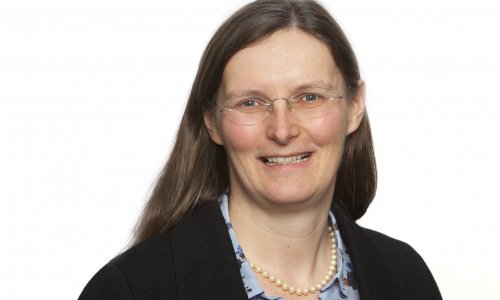Tackling MRSA
A universal decolonisation approach shows impressive results
Decontaminating every patient in an intensive care unit is a far more effective approach to controlling infections in hospitals, according to a new study, Mark Nicholls reports.

Carried out in the USA, the researchers found that giving all patients in adult intensive care units a daily bath with antiseptic soap and an antibiotic ointment in the nose removed antibiotic-resistant bacteria from their bodies and protected them from serious bloodstream infections.
Now a hospital group at the study centre – the Hospital Corporation of America, the nation’s largest hospital chain - is adopting universal ICU decontamination.
The Randomised Evaluation of Decolonisation Versus Universal Clearance to Eliminate (REDUCE) MRSA trial took place in two stages from 2009-2011 with a multidisciplinary team from the University of California, Irvine; Harvard Pilgrim Health Care Institute; Hospital Corporation of America (HCA); and the Centres for Disease Control and Prevention (CDC) focusing on 74 adult ICUs and 74,256 patients, making it the largest study on this topic.
The researchers found that using germ-killing soap and ointment on all ICU patients can reduce bloodstream infections by up to 44% and significantly reduce the presence of methicillin-resistant Staphylococcus aureus (MRSA) in ICUs.
During the work, the effectiveness of three MRSA prevention practices were evaluated: routine care, providing germ-killing soap and ointment only to patients with MRSA, and providing germ-killing soap and ointment to all ICU patients. In addition to being effective at stopping the spread of MRSA in ICUs, the study found the use of germ-killing soap and ointment on all ICU patients was also effective for preventing infections caused by germs other than MRSA.
Lead author Dr Susan Huang, Associate Professor, Infectious Disease School of Medicine and Medical Director (Epidemiology and Infection Prevention) at University of California, Irvine, said: ‘These findings are significant in three ways. First, it suggests that simple bathing with special soap and a nose ointment can provide a 44% reduction in bloodstream infections from all pathogens and a 37% reduction in MRSA clinical cultures. Second, it provides an answer to the longstanding question of whether to target high-risk pathogens one by one or to target high-risk people as if they are all at risk for high-risk pathogens. We found that targeting all high-risk people was a superior strategy.
‘Third, she continued, ‘this trial was conducted using the usual infrastructure for quality improvement campaigns in hospitals. This suggests that findings can be replicated in a wide range of hospitals.’
The universal decolonisation strategy, she added, was the most effective and easiest to implement. It eliminates the need for screening ICU patients for MRSA. The next step is to implement the strategy within hospitals and researchers are in the process of doing a formal cost-effectiveness assessment.
‘We suspect that the large reduction in infections will cause this strategy to be highly cost-saving,’ added Dr Huang. ‘The benefits are related to a lower risk of having MRSA clinical cultures for any reason and a lower risk of a bloodstream infection.’
HCA says the findings suggest a major change in healthcare practice that could save lives. As a result of the findings, HCA is in the process of implementing universal decolonisation in the adult intensive care units at its affiliated hospitals.
Jonathan B Perlin MD, President of the Clinical and Physician Services Group and Chief Medical Officer of HCA, said: ‘The Reduce MRSA study proved that universal decolonisation is the best practice to prevent infection from MRSA and other dangerous bacteria in high risk ICU patients.
‘These compelling results convinced us to implement this protocol in HCA hospital adult ICUs. Universal decolonisation should be a new part of a comprehensive infection prevention effort that begins with hand hygiene and includes a number of proven practices.’
The researchers noted that this trial took place in HCA facilities, mostly in community hospitals, rather than academic institutions and that it was conducted by hospital personnel rather than specially trained researchers. Therefore, unlike some clinical studies, these results are likely to be applicable to nearly all US hospitals.
PROFILE:
Dr Susan Huang is Associate Professor at the Infectious Disease School of Medicine and Medical Director (Epidemiology and Infection Prevention) at the University of California, Irvine. Her research focuses on the clinical epidemiology of highly antibiotic-resistant organisms, including the estimation of risk for infection and assess to practical means for prevention. These involve studying the risks of nosocomial MRSA and vancomycin-resistant enterococcus (VRE) transmission plus strategies to mitigate transmission.
Jonathan B Perlin, President, Clinical and Physician Services and Chief Medical Officer of HCA (Hospital Corporation of America), provides leadership for clinical services and improving performance at HCA’s 163 hospitals and more than 600 outpatient centres and physician practices.
Current activities include implementing electronic health records throughout HCA, improving clinical core measures to benchmark levels, and leading patient safety programmes to eliminate preventable complications and healthcare-associated infections. Before joining HCA in 2006, he was Under Secretary for Health in the USA’s Department of Veterans Affairs.
18.11.2013





